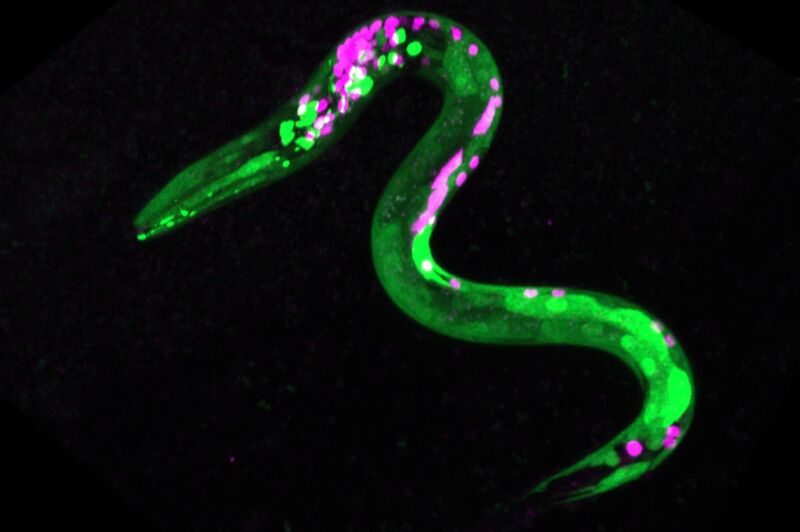Give roundworms some weed and they’ll get the munchies, study finds

Enlarge / Image of worm that is genetically engineered so that certain neurons and muscles are fluorescent. Green dots are neurons that respond to cannabinoids. Magenta dots are other neurons. (credit: Stacy Levichev)
There is historical evidence that people knew as far back as 300 BCE about the ability of cannabis-which includes several different plants, such as sativa, indica, and ruderalis-to stimulate the appetite. The technical term is "hedonic amplification of feeding," but most of us know it more colloquially as "the munchies." Numerous scientific studies have found evidence in support of this effect. And now it seems like the humble roundworm, C. elegans, also experiences the munchies when dosed with cannabinoids, according to a new paper published in the journal Current Biology. We suspect it's not a coincidence that the paper was released on April 20.
The worms in the experiments showed a marked preference for the roundworm equivalent of potato chips or ice cream-high-calorie junk food. We suggest that this increase in existing preference is analogous to eating more of the foods you would crave anyway," said co-author Shawn Lockery, a neuroscientist at the University of Oregon in Eugene. It's like choosing pizza versus oatmeal."
The endocannabinoid system (ECS) regulates and controls several critical bodily functions: learning and memory, sleep, temperature control, pain control, alertness, and appetite, for instance. It's basically a network of chemical signals and receptors running all through the brain and body. One of the most numerous receptors in the brain is called CB1, which helps control the levels and activity of neurotransmitters. The body naturally produces molecules called endocannabinoids to stimulate those CB1 receptors. There are also CB2 receptors that are mostly concentrated in the immune tissues that help keep the immune system functioning properly.